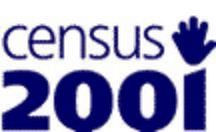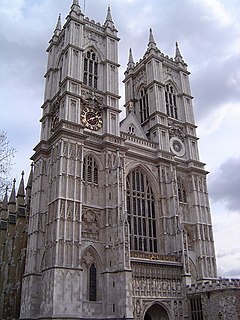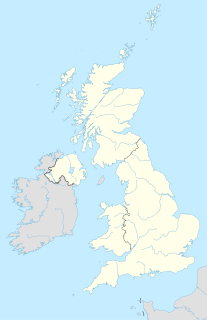
The United Kingdom (UK), officially the United Kingdom of Great Britain and Northern Ireland, informally as Britain, is a sovereign country lying off the north-western coast of the European mainland. The United Kingdom includes the island of Great Britain, the north-eastern part of the island of Ireland and many smaller islands. Northern Ireland is the only part of the United Kingdom that shares a land border with another sovereign state—the Republic of Ireland. Apart from this land border, the United Kingdom is surrounded by the Atlantic Ocean, with the North Sea to the east, the English Channel to the south and the Celtic Sea to the south-west, giving it the 12th-longest coastline in the world. The Irish Sea lies between Great Britain and Ireland. With an area of 242,500 square kilometres (93,600 sq mi), the United Kingdom is the 78th-largest sovereign state in the world. It is also the 22nd-most populous country, with an estimated 66.0 million inhabitants in 2017.

According to the 2011 census, the total population of the United Kingdom was around 63,182,000. It is the 21st-most populated country in the world. Its overall population density is 259 people per square kilometre, with England having a significantly higher population density than Wales, Scotland and Northern Ireland. Almost one-third of the population lives in England's southeast, which is predominantly urban and suburban, with about 9 million in the capital city of London, the population density of which is just over 5,200 per square kilometre.

English, in various dialects, is the most widely spoken language of the United Kingdom, however there are a number of regional languages also spoken. There are 14 indigenous languages used across the British Isles: 5 Celtic, 3 Germanic, 3 Romance, and 3 sign languages. There are also many immigrant languages spoken in the British Isles, mainly within inner city areas; these languages are mainly from South Asia and Eastern Europe.

Law enforcement in the United Kingdom is organised separately in each of the legal systems of the United Kingdom: England and Wales, Northern Ireland and Scotland. Most law enforcement is carried out by police officers serving in regional police services within one of those jurisdictions. These regional services are complemented by UK-wide agencies, such as the National Crime Agency and the national specialist units of certain territorial police forces, such as the Specialist Operations directorate of the Metropolitan Police.

The National Archives (TNA) is a non-ministerial government department. Its parent department is the Department for Culture, Media and Sport of the United Kingdom of Great Britain and Northern Ireland. It is the official archive of the UK government and for England and Wales; and "guardian of some of the nation's most iconic documents, dating back more than 1,000 years." There are separate national archives for Scotland and Northern Ireland.

A nationwide census, known as Census 2001, was conducted in the United Kingdom on Sunday, 29 April 2001. This was the 20th UK census and recorded a resident population of 58,789,194.

Religion in the United Kingdom, and in the countries that preceded it, has been dominated for over 1,000 years by various forms of Christianity. Religious affiliations of United Kingdom citizens are recorded by regular surveys, the four major ones being the national decennial census, the Labour Force Survey, the British Social Attitudes survey and the European Social Survey.
The United Kingdom Census of 1851 recorded the people residing in every household on the night of Sunday 30 March 1851, and was the second of the UK censuses to include details of household members. However, this census added considerably to the fields recorded in the earlier 1841 UK Census, providing additional details of ages, relationships and origins, making the 1851 census a rich source of information for both demographers and genealogists.
Spaniards in the United Kingdom are people of Spanish descent resident in Britain. They may be British citizens or non-citizen immigrants.
Ukrainians in the United Kingdom consist mainly of British citizens of Ukrainian descent.

The following outline is provided as an overview of and topical guide to the United Kingdom of Great Britain and Northern Ireland; a sovereign state in Europe, commonly known as the United Kingdom (UK), or Britain. Lying off the north-western coast of the European mainland, it includes the island of Great Britain—a term also applied loosely to refer to the whole country—the north-eastern part of the island of Ireland and many smaller islands
Czechs in the United Kingdom refers to the phenomenon of Czech people migrating to the United Kingdom from the Czech Republic or from the political entities that preceded it, such as Czechoslovakia. There are some people in the UK who were either born in the Czech lands or have Czech ancestry, some of whom descended from Jewish refugees who arrived during World War II.

The United Kingdom (UK) comprises four countries: England, Scotland and Wales and Northern Ireland.

A census of the population of the United Kingdom is taken every ten years. The 2011 census was held in all countries of the UK on 27 March 2011. It was the first UK census which could be completed online via the Internet. The Office for National Statistics (ONS) is responsible for the census in England and Wales, the General Register Office for Scotland (GROS) is responsible for the census in Scotland, and the Northern Ireland Statistics and Research Agency (NISRA) is responsible for the census in Northern Ireland.
The UK Statistics Authority announced on 27 March 2014 that it has recommended to the United Kingdom Government that the next census in England and Wales should take place in 2021, a decade after the previous census in March 2011. The National Records of Scotland (NRS) also reported on the same date that it was proposing to the Scottish Government that a census in Scotland should also take place in 2021. A further detailed plan was published by NRS on 27 September 2018. In October 2014 the Northern Ireland Statistics and Research Agency (NISRA), which is responsible for the census in Northern Ireland, published its proposals to conduct a census in 2021. These announcements followed on from a series of co-ordinated research projects known collectively as the Beyond 2011 Programme.
The United Kingdom Census 1911 of 2 April 1911 was the 12th nationwide census conducted in the United Kingdom of Great Britain and Ireland. The total population of the United Kingdom was approximately 45,221,000, with 36,070,000 recorded in England and Wales, 4,761,000 in Scotland, and 4,390,000 in Ireland.
The United Kingdom Census 1951 was a census of the United Kingdom of Great Britain and Northern Ireland carried out on 8 April 1951. It was the first to ask about household amenities and the largest so far attempted in the country.













